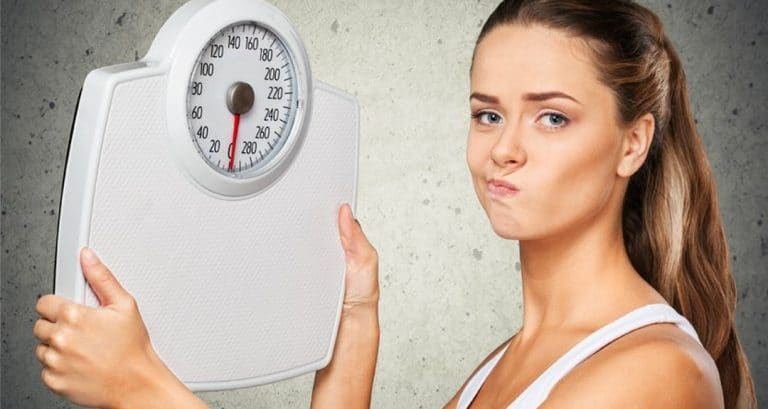The Truth About Coffee & Weight Loss
Did you know that 54% of American adults drink coffee every single day? In just one country, that’s over 125 million people who reach for a cup of java to start their day! It’s one of the most popular beverages in the world, but it’s not only delicious. Scientists have started investigating coffee’s health benefits as well, particularly the relationship between coffee and weight loss.
Table of Contents
Beneficial Effects of Coffee
Caffeine is a nervous system stimulant. It produces a stress response in your brain and body that kicks your neurotransmitters into overdrive. This reactions is what keeps you awake late at night (whether you like it or not), reduces hunger and boosts energy. Since eating less and moving more are central to weight loss, it makes sense that caffeine has become a key ingredient in weight loss supplements. So will a daily cup of coffee do the same? Here’s a little more about effects of caffeine that make people wonder if there’s a relationship between coffee and weight loss.
More Energy
Caffeine, and by extension coffee, is famous for the ‘buzzed’ you get when you’ve had too much. Caffeine’s stimulating effect makes our neurotransmitters – specifically serotonin, dopamine and acetylcholine – more effective, which can help us focus and deal with stressful situations. At the same time, it stimulates the release of adrenaline – the “fight or flight” chemical. Adrenaline increases blood flow to our muscles and makes us temporarily stronger. As a result, some studies have suggested that drinking a small cup of coffee just before hitting the gym can increase workout intensity, and in turn calorie burn.
Faster Metabolism
Coffee also promotes increased production of heat within tissue to raise the body’s temperature and create energy from food digestion, or thermogenesis. Several factors can affect thermogenesis: exercise, environmental temperature and diet. Thermogenesis generated while exercising results from muscle cells burning calories to provide the energy needed for muscle contraction. Environmental thermogenesis occurs when your brain sends signals to your muscles in response to cold temperatures, to produce heat and warm your body. Finally, some foods also increase thermogenesis, and coffee have an especially pronounced effect on this process.
Caffeine prompts the body burn calories more efficiently via increased thermogenesis. This translates into increased energy and fat reduction in the body. This delicious beverage has been proven to boost fat burning by ten to sixteen percent! Still, in comparison to exercise- or environment-induced thermogenesis, the fat burning effects from caffeine are relatively temporary, so don’t start thinking that coffee is some magic elixir for weight loss.
Less Hunger
Coffee also helps keep your hunger under control. You’ll reap the most appetite suppressing effects if you enjoy the caffeinated beverage during or just after a meal. Warm drinks like coffee or tea naturally aid digestion, and the caffeine may help you skip seconds or dessert. This gives your stomach time to tell your brain that you’re already full. However, the appetite suppression from coffee is only temporary and unlikely to noticeably affect your overall daily intake.

Coffee and Weight Loss
Experts are still on the fence about whether coffee produces any true benefits for weight loss. Even proponents agree that it’s not a magic bullet. The most common opinion is that it’s a delicious beverage, enjoyed by millions, that may also prove beneficial for health. In addition to the relationship between coffee and weight loss, researchers are also looking into the drink’s ability to improve cognitive functioning and reduce the risk of diabetes, prostate cancer and depression.
Still, like most things in life, coffee is best enjoyed in moderation. An excess of caffeine (above about 400mg per day) can lead to a variety of negative side effects including disrupted sleep schedules, jitters, anxiety and high blood pressure. Sleep disruption proves especially worrisome if you’re aiming for weight loss since science shows that a lack of sleep can actually lead to weight gain.
… And the Add-Ins
It’s important to keep in mind that these studies focus on coffee itself, not our favorite coffee drinks made with plenty of extra milk and sugar. Any potential fat-burning or metabolism-boosting effect of black coffee is quickly negated when you dress it up with hundreds of calories in milk, sugar and flavorings.
The healthiest (and lowest calorie) coffee order is without cream or sugar. This means black drip coffee, or an americano if you prefer espresso. Can’t stand the taste of black coffee? Try these easy subsitutions to lower the calories, fat and sugar in your morning drink:
- Skim milk instead of 2% or whole milk
- Order your coffee unflavored/unsweetened (or choose sugar-free syrups & sugars)
- Skip the whipped cream
- Swap your usual mocha, blended coffee or flavored latte for a cappuccino or caffe latte
In Summary
Research indicates that coffee may have some health benefits, including weight loss, but that shouldn’t be the only reason you drink it. If you like coffee, enjoy in moderation and try to avoid the potentially fattening add-ins! If you don’t like coffee, the evidence isn’t so convincing that we’d recommend forcing yourself to gulp it down. While coffee and weight loss may be related, the scientific community still needs more research to come to any definite conclusions.
Does coffee help you lose weight? Are coffee and weight loss related at all? Let us know what you think in the comments section below!







I literally can’t function without coffee so thank you for this article.